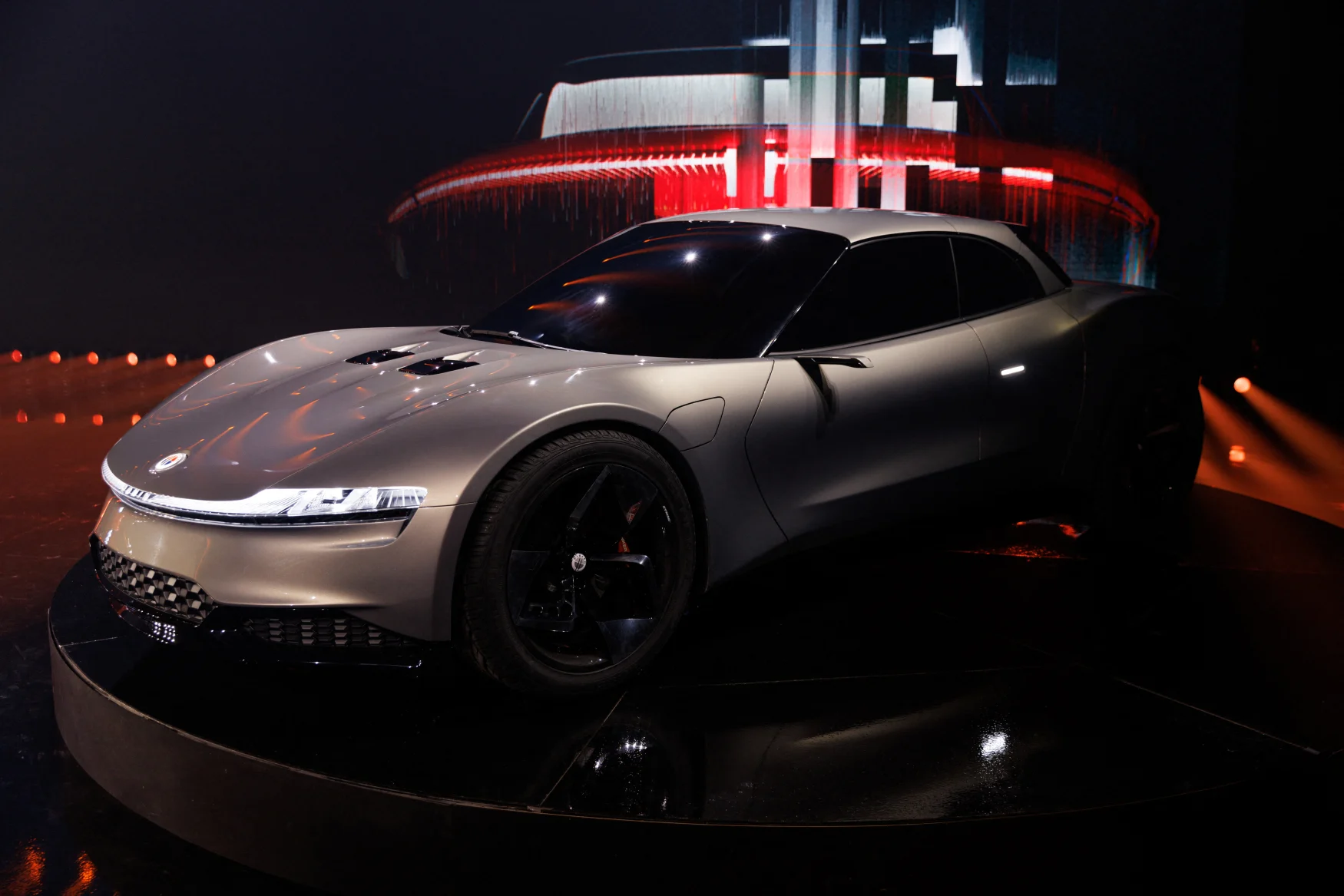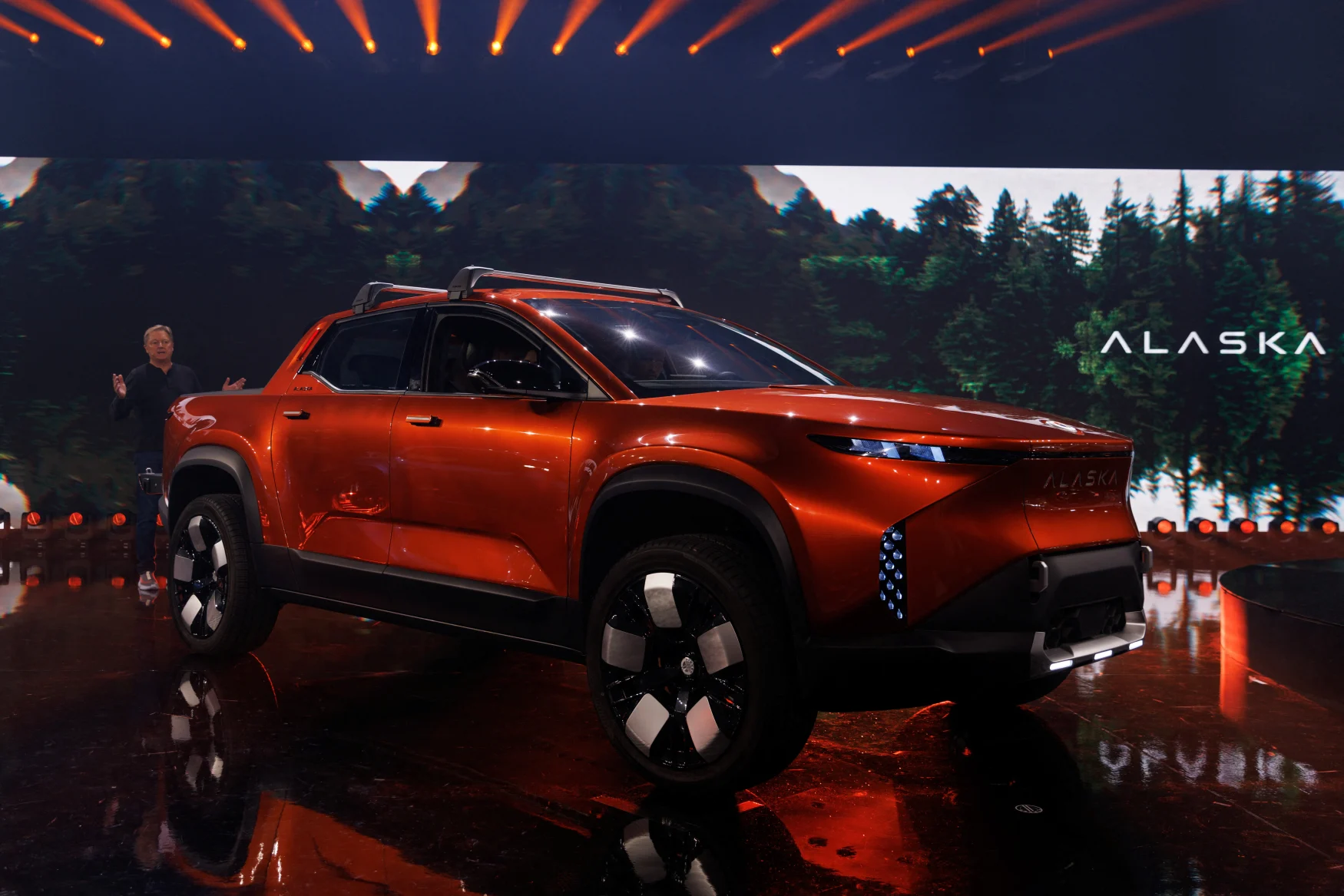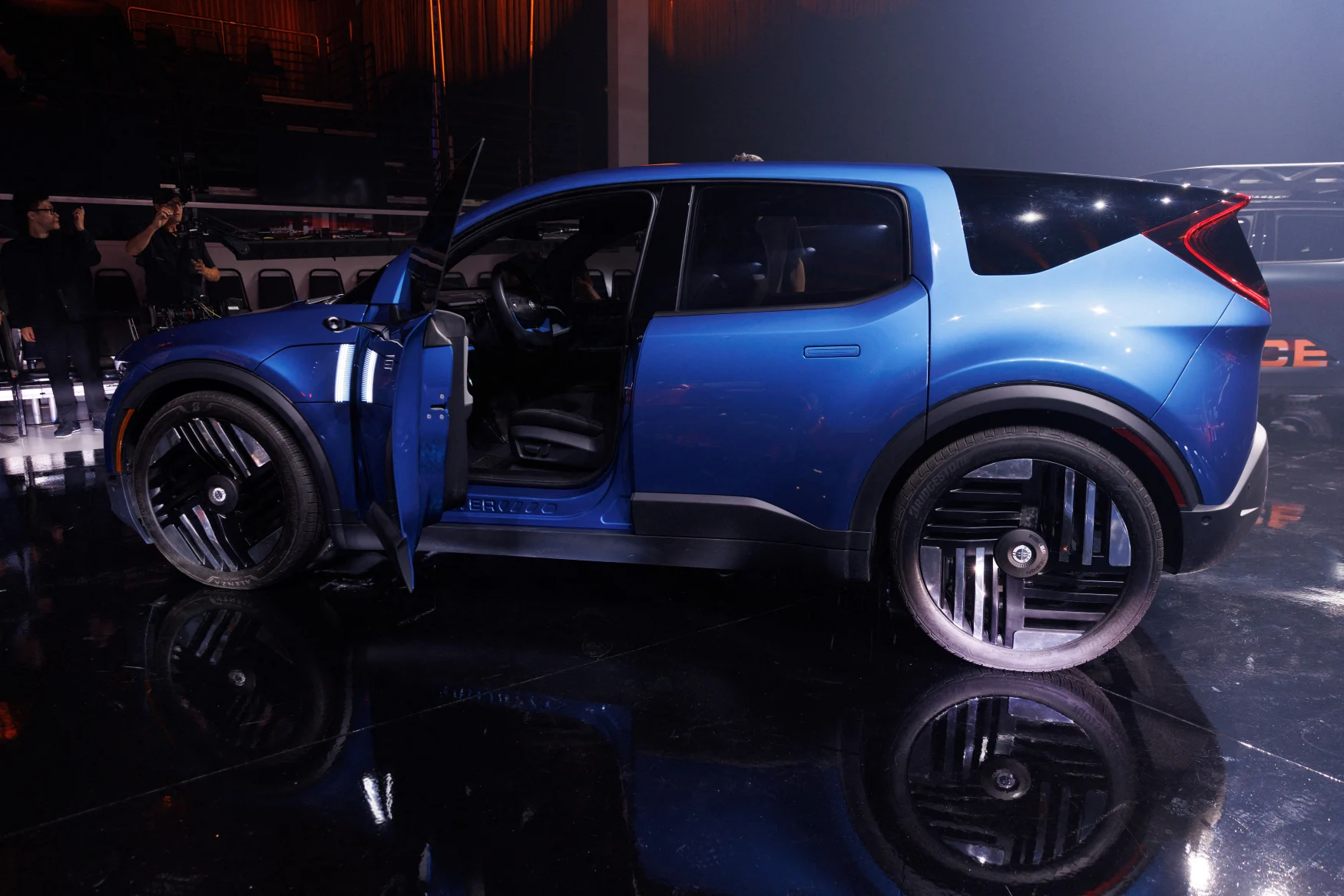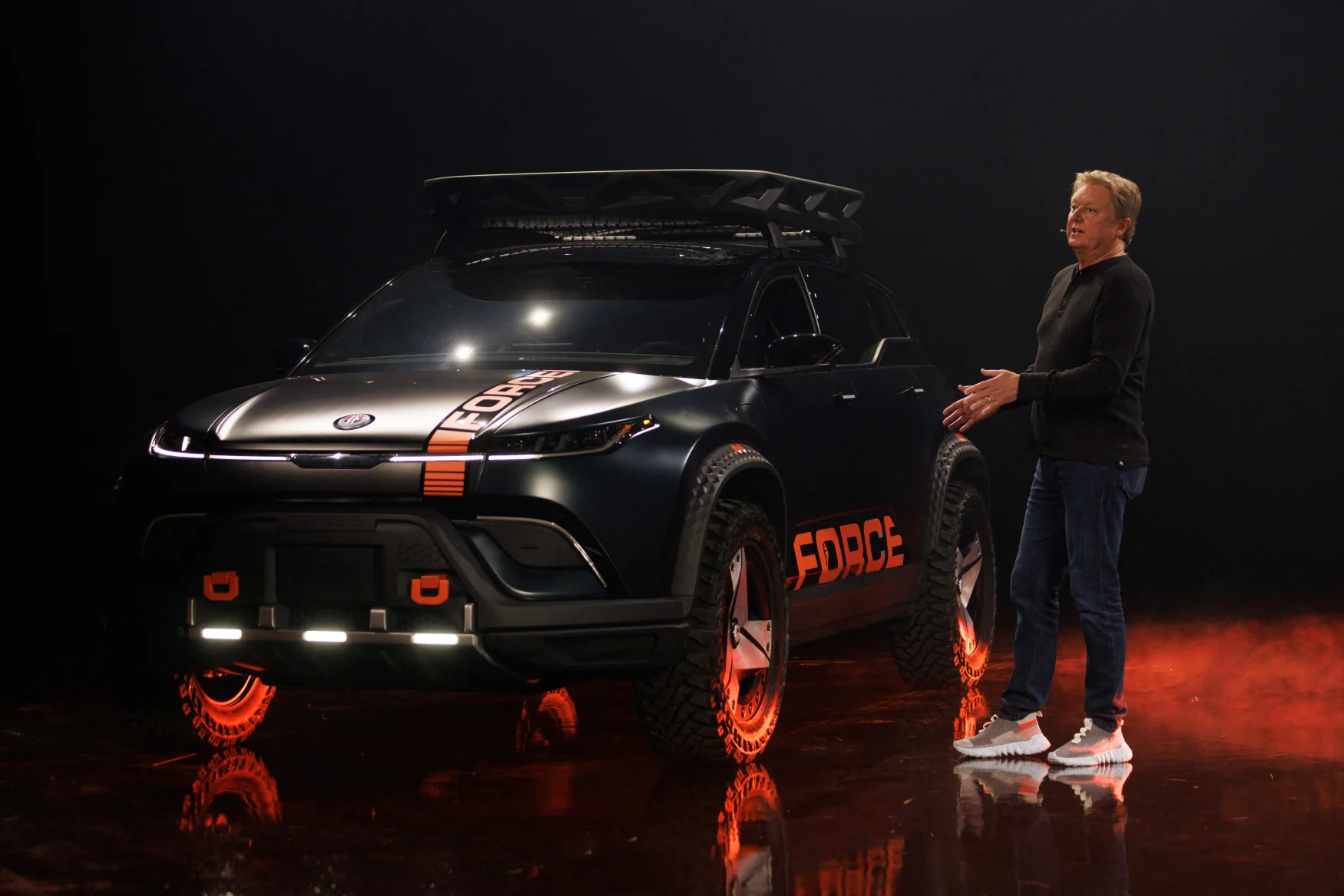It also announced that the Ronin EV supercar will cost a whopping $385,000.
At its Product Vision event in California, Fisker unveiled no less than three EVs and also announced pricing and more details of the previously teased Ronin. The new models include the Alaska electric pickup, Pear EV priced at $29,900 before incentives and the Force E, a rugged off-road version of the Ocean.
First on the docket, however, is the Ronin — a four-door supercar EV that the company teased last month. Fisker previously showed only a brief glimpse of it, promising a 600 mile range and sub-$200,000 price tag. Now, the company has unveiled it in full on the outside only (no interior shots), but CEO Henrik Fisker is still being guarded about the technology — and the price has roared way past its previous estimate.

Mike Blake / reuters
Fisker said it’ll hit 60 MPH in under 2.0 seconds thanks to three electric motors delivering 1,000 horsepower via an all-wheel drive setup. As for the battery back, “we are looking to integrate the cells into the structure of the body and that will give us our goal of getting to 600 miles of range,” Fisker said in a not-exactly-definitive statement. The company is giving itself some time to get there, though, citing a delivery window near the end of 2025.
The price, though, is a shocker. Fisker didn’t mention it at the event, but a new reservation page says the Ronin will start at “$385,000 before any incentives,” or nearly double what the company originally mentioned. Luckily, interested parties will only need to put down a $2,000 deposit which is just 0.5 percent of the purchase price.

Mike Blake / reuters
The most interesting vehicle is the Alaska electric pickup. It’s based on the Ocean (and built on the same platform), but has a pickup truck bed and midgate that lowers to extend the bed into the cabin — allowing it to haul longer cargo than the shortish bed would suggest. That’s much like Chevy’s new Silverado EV, which it strikingly resembles.
The Alaska will start at $45,400 (it will be US-built and qualify for EV incentives) with a range of around 230 miles between charges, less than the Ocean. However, the company is promising a more expensive model that can go up to 340 miles between charges. Because it’s based around the Ocean which is now in production, the company expects it to go on sale as early as December 2024 — sooner than the Pear or Ronin. Henrik Fisker is much better at designing vehicles than estimating prices and production schedules, though, so take all those numbers and dates with a large grain of salt.

Mike Blake / reuters
The Pear electric crossover will be Fisker’s budget offering, coming in at under $30,000 with all-wheel drive, dual motors and range of about 300 miles. While just a bit smaller than the Ocean, it will be built on a new platform that allows a 35 percent reduction in parts and thus a lower price. It will come in five- or six-seat layouts (the latter via a front bench seat), and offers what looks like an attractive but basic interior for the price.
Other touches include a “Houdini Trunk” lift gate designed to simplify cargo loading, along with a frunk (or “froot” in Fisker’s nomenclature). It also offers LED lighting and a “lounge mode” that lets you move the seats around to maximize comfort. Fisker plans to build the Pear at Foxconn’s Lordstown plant so it’s eligible for tax incentives, with production estimated around mid-2025. Again, treat those price and production estimates skeptically.

Mike Blake / reuters
Finally, Fisker unveiled the Force E, an offroad/adventure version of the Ocean. It comes with 33-inch off-road tires and 21-inch aluminum wheels, along with a large roof rack and wide fenders. It offers more ground clearance, front, rear and underbody skid plates, and improved offroad handling. The package is available to new buyers, but existing Ocean owners can also upgrade their vehicles, It’s set to arrive in Q1 2024, with pricing to be announced around then.